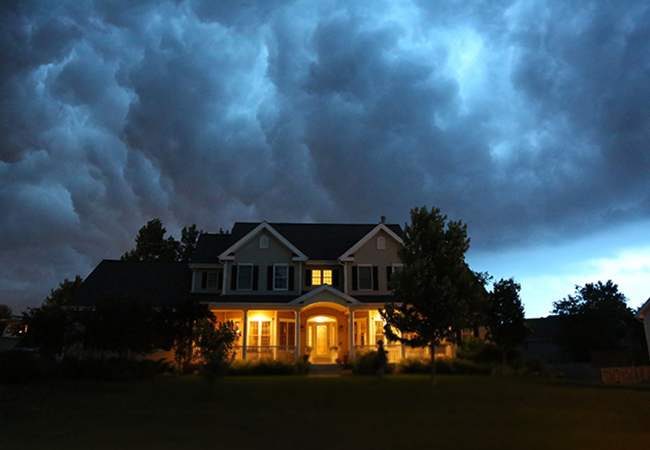Are your sellers worried they’ll scare off potential buyers with too much information? A real estate disclosure may seem intimidating, but it’s an important part of selling a home! From potential hauntings to creepy crawlies—and everything in between—providing pertinent details about a house can help establish trust between the sellers and buyers, as well as prevent unwanted legal issues.
In this article, we examine some standard (and spooky!) information your clients may have to disclose when they put their homes on the market.
General best practices for disclosures
Sellers will typically fill out some kind of disclosure document (or multiple documents) that outlines any issues they’re aware of that might negatively impact the property’s value. Requirements for this document vary by location. Some states don’t require sellers or sellers’ agents to disclose defects, unless directly asked or if the defect poses an immediate health or safety risk. Alabama, for instance, operates under a law of caveat emptor, which essentially means “buyer beware.” In that case, sellers can keep their lips zipped while buyers are expected to perform due diligence through inspections and other measures.
If your seller has any doubts about whether or not to disclose a piece of information, it may be in their best interest to go ahead and include it. After all, they don’t want to get spooked by an unexpected lawsuit! According to a real estate attorney, “In the vast majority of cases, disclosing the additional information (especially if it is something that was previously repaired), will not cause a buyer to back out or ask for a price reduction.”
Additionally, a client who is selling a home “as is” will probably not be exempt from having to disclose major issues. That being said, all of these disclosure rules relate to known issues. Usually, it is unrealistic for a seller to be held liable for defects they are unaware of, unless the buyer can prove that the seller was intentionally ignorant of existing issues.
Frightening real estate disclosure categories
Now, let’s get into some scary types of disclosures your sellers may encounter! It’s important to note that disclosure laws differ depending on state and municipality. You and your clients may want to consult local resources for more information on specific laws in your area.
Hazards
If a home is known to have or may potentially have hazardous elements that could impact the health of the buyer or the integrity of the property, that information might need to be included in the real estate disclosure. Think asbestos, radon gas, toxic waste and other not-so-pleasant features. While laws regarding most hazards vary regionally, the federal government offers a universal consensus on lead-based paint. According to the Lead-based Paint Disclosure Rule, sellers (along with their real estate agents) must notify buyers of the presence of lead-based paint on their property.
Some states may also require disclosures regarding potential hazards from natural disasters, such as whether a home is on a flood plain or in an area with increased wildfire risk. California, for example, passed the Natural Hazards Disclosure Act, which requires sellers to disclose whether their home lies in one of the established hazard zone types. These zones relate specifically to flooding, dam failure, wildfires and earthquakes.
Pests
Does your client have creepy crawlies in their house? If so, they might need to let potential buyers know! While a few spiders here and there would likely not be cause for disclosure (although arachnophobes may disagree!), some laws do mention insect or rodent infestations, particularly if the presence of the critters causes any structural damage to the home. Colorado’s seller disclosure form has a line item specifically for “damage due to termites, other insects, birds, animals or rodents.”
Major nuisances
This category often includes external factors that may be harmful or irritating to the new homeowners. Depending on the state, there could be a wide variety of things that fall under the umbrella of “major nuisances,” from noisy neighbors to terrible odors from nearby manufacturing plants. Some of these nuisances might be less overt—nearby airports, shooting ranges, farms, landfills and other operations may need to be disclosed in certain areas.
With this in mind, it’s also crucial for buyers to do their research and pick the right community!
Death in the home
Of course, no one wants to bring the topic of death into a real estate transaction, but depending on the state your seller resides in and the nature of the death, it may be necessary. In California, they must disclosure any death that occurred on the property within the last three years—regardless of the cause. Texas, on the other hand, doesn’t require real estate disclosure for deaths as a result of natural causes, accidents unrelated to the property or suicides.
Generally speaking, your sellers should probably share any death directly related to a condition of the property (such as one from toxic mold, structural failures, etc.). In fact, Nevada law requires this. Some states may also require (or recommend) disclosure of deaths from a violent crime. These events could lead a home to be “stigmatized,” which might negatively impact the perceived value of the property and even the surrounding neighborhood.
Hauntings
Haunted houses drive the plots of many scary movies, but what happens if your seller has an allegedly haunted home in real life? While most states do not necessarily mention the paranormal in their real estate disclosure laws, rules around stigmatized properties could also apply to alleged ghostly happenings. Look at it this way: if your client cultivates the reputation of having a paranormal house guest, this could negatively impact the perceived value of the home, regardless of whether the seller genuinely believes their property is haunted.
According to an analysis by Zillow, four states actually address paranormal activity in their laws. In one of these states, New York, courts can “rescind a home sale if the seller creates and perpetuates a reputation that the house is haunted and then takes unfair advantage of a buyer’s ignorance of the home’s ghostly reputation.” For your client, a lost sale may be even scarier than a ghost in their home!
Even if the law doesn’t explicitly require a certain type of disclosure, it’s in the best interest of both the seller and the seller’s agent to respond truthfully when a buyer asks for specific information.
Set your sellers up for success!
Share this guide, filled with tips to help your clients prep their home for better listing photos.





